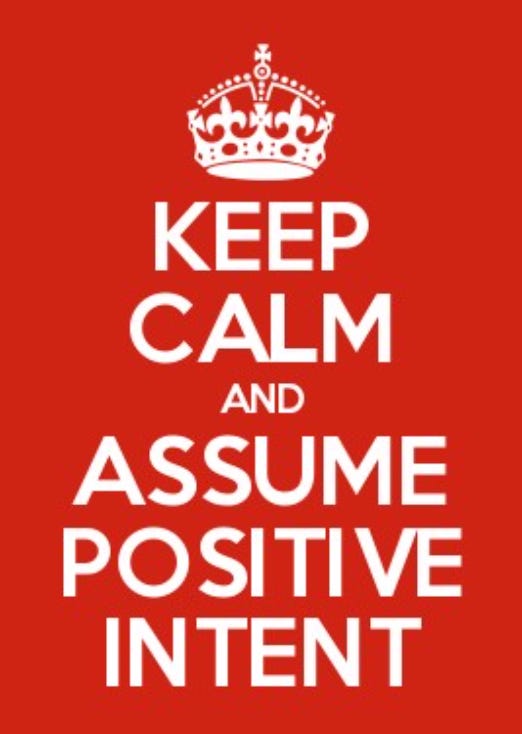Don’t Let Worst Possible Stories Win
If you can count on one thing, it’s that whenever there’s limited information people will make up the Worst Possible Story to fill in the gaps.
- “My boss hates me!”
- “That guy is a #$@%.”
- “How can they be so stupid?”
This dynamic can be especially harmful in newly remote teams, who have not yet developed patterns of communication that work for them or in distant working relationships across organizational silos.
So what can we do about it?
- Be as open and transparent as you can, especially around hot button issues.
- Create as many opportunities for people to get to know each other better, so that there’s a lot of shared context and accumulated goodwill when trouble arises.
- And most of all: adopt the API (Assume Positive Intent) habit for yourself and with your team.

Who? What? When?
When you get angry about something someone said, wrote or did. Instead of jumping to conclusions, take a deep breath and consider the alternatives by asking:
- How might this make sense?
- In what circumstances might this be a reasonable thing to say, write or do?
- Is there any part of this I can agree with?
It might not solve all your problems, but believe me: it can be transformational in many difficult situations.
Try it!
